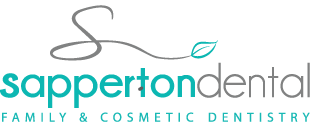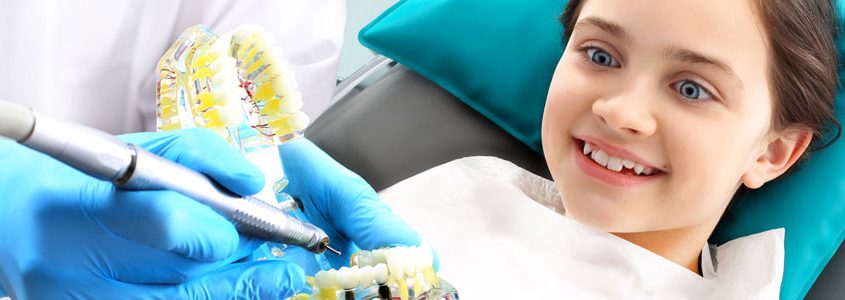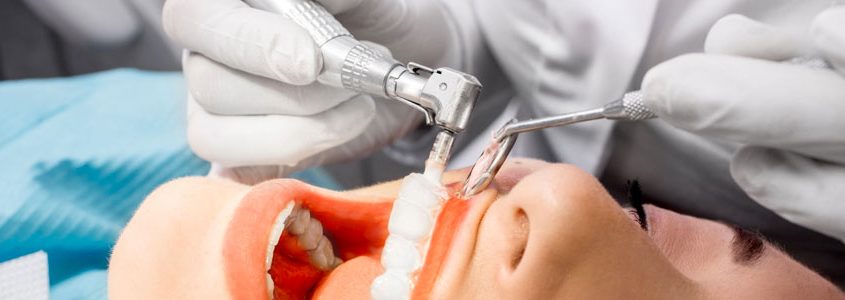New Westminster Family Dentist Answers Questions from Parents
Your children’s teeth might be small, but they are important. Following good dental practices as a child is the only way to ensure your children’s dental care routine lasts into their adult years. However, knowing exactly what to do sometimes can be difficult. Parents generally have lots of questions when it comes to their children’s oral hygiene needs.
Just in case you are too nervous or embarrassed to ask, we’ve listed the top questions parents have asked our family dentist about their kids’ teeth.
When should my child see the dentist for the first time?
This is probably the most common question our family dentists hear on a day-to-day basis. The most common time to bring your child to see a dentist is when his or her first tooth erupts. It’s important to create regular dental habits as early as possible.
What should I expect from my child’s first dental visit?
Typically, on a child’s first visit to our Sapperton Dental Office on Columbia Street, the minimum goal is to complete an examination and apply a fluoride varnish. We also work on getting your child to feel comfortable sitting in the dentist’s chair and with the overall process.
Should my child get braces?

It seems like almost every kid these days has dental braces, and if yours doesn’t, you’re likely wondering if there is some sort of requirement. Fortunately enough, you’re not required to get braces for your child. But if you’re worried his or her teeth aren’t growing in correctly, it might be time for to drop by our New Westminster Dental Office for a consultation.
Do baby teeth really matter if they’re just going to fall out eventually?
This question makes a lot of sense. What’s the point of putting a ton of effort into taking care of baby teeth when they’re just going to fall out? However, baby teeth matter just as much as adult teeth because they pave the way for adult teeth. The way you take care of your child’s baby teeth can have a long-lasting impact on their adult teeth.
Should you brush your child’s teeth?
In short, yes! As explained in the previous question, baby teeth are important and taking care of them encourages good dental habits in your child’s life that will last a lifetime.
How should I brush my child’s teeth?
Your child needs to brush his teeth twice a day, in the morning and after dinner. Ensure that he/she is brushing the inside and outside surfaces thoroughly to dislodge any bacteria. Squirt a small amount of toothpaste onto a soft, children’s toothbrush and begin brushing in a small circular pattern. Children 2 years old and younger only need a small amount of toothpaste, similar to the size of a grain of rice. Children between the age of 2 and 4 years old only need an amount of toothpaste equal to the size of a pea. While children who are 5 years old and older can use the equivalent of the size of a bean
When is it okay to let my child start brushing on his own?
Unfortunately, there is no set age when your child will have the skills to brush his teeth on his own. Each child is different. However, it’s a good idea to allow your child to begin brushing his teeth as soon as he is willing. Of course, you’ll want to stand by and watch to ensure he is doing it properly. As a good rule of measure, your child will probably need assistance brushing his teeth until he is around 6 years old or so.
What should I do if my child doesn’t want to brush?
As a parent, you are well aware that it’s hard to get your child to do anything he doesn’t want to. If your child avoids brushing his teeth like the plague, get creative. Make brushing time more of an event than a duty. Let them know that children’s dental practices can be fun. Consider making it a family practice, where you all do it together, or consider purchasing him a toothbrush with his favorite character on it.
Are Dental X-Rays safe for my child?
X-rays are a normal part of every dental visit, but they’re also exposure to radiation, which makes this question a completely valid concern. However, the risk associated with this very small amount of radiation is non-existent.
Should you consider sedation dentistry for your child?
Sometimes children are incredibly anxious and afraid of going to the dentist. This is called dental phobia or anxiety, and many adults suffer from it as well. Sedation dentistry is definitely an option to calm your child’s nerves, but be sure to consult with your family dentist first.
How can you change your child’s diet with oral health in mind?
The way we eat greatly affects our oral health, and the same is more true for your children. To encourage healthy dental habits, make sure your child eats a healthy, balanced diet. Limit their sugar and starch intake, as these substances most commonly encourage tooth decay.
And always remind your child to rinse their mouth after a meal or drink.
What should you do if your child has a toothache?
Children get bumps and bruises all the time, but that doesn’t mean you need to see a doctor. However, if your child is complaining of a toothache, you should set up an appointment with our Family Dentist at Sapperton Dental Office as soon as possible. To alleviate the pain until you can see a dentist, give your child acetaminophen. You should also rinse the area with warm salt water.
How can you prevent tooth decay?
As a parent, you want what’s best for your child, so it’s understandable that you want to know the best way to take care of your child’s teeth. One of the best things you can do is to teach regular, healthy dental habits, and lead by example. And, of course, don’t forget to schedule regular dental appointments for cleanings and checkups at Sapperton Dental Office on 301 East Columbia Street #105 New Westminster, British Columbia V3L 3W5.







 Drinking carbonated sugary drinks is perhaps one of the worst things you can do to your teeth. Fizzy drinks essentially coat your entire mouth with tooth-decaying acid. One study even found sugar-filled soda could be as bad for your teeth as using methamphetamine and crack cocaine! Keep your soda intake to a minimum, and when you do indulge, make sure to wait at least 20 minutes before brushing your teeth afterward.
Drinking carbonated sugary drinks is perhaps one of the worst things you can do to your teeth. Fizzy drinks essentially coat your entire mouth with tooth-decaying acid. One study even found sugar-filled soda could be as bad for your teeth as using methamphetamine and crack cocaine! Keep your soda intake to a minimum, and when you do indulge, make sure to wait at least 20 minutes before brushing your teeth afterward. All types of candy are tough on your teeth, but sour candy, in particular, is especially damaging. Not only do sour candies contain a unique type of acid that eats away at your enamel, they also tend to be chewy and will stick to your teeth for a longer time, so they’re more likely to cause decay. If you’re craving sweets, grab a square of chocolate instead, which you can chew quickly and wash away easily.
All types of candy are tough on your teeth, but sour candy, in particular, is especially damaging. Not only do sour candies contain a unique type of acid that eats away at your enamel, they also tend to be chewy and will stick to your teeth for a longer time, so they’re more likely to cause decay. If you’re craving sweets, grab a square of chocolate instead, which you can chew quickly and wash away easily. Think twice as you walk down the supermarket bread aisle. When you chew bread, your saliva breaks down the starches into sugar. Now transformed into a gummy paste-like substance, the bread sticks to the crevices between teeth. And that can cause cavities. When you’re craving some carbs, aim for less-refined varieties like whole wheat. These contain less added sugars and aren’t as easily broken down.
Think twice as you walk down the supermarket bread aisle. When you chew bread, your saliva breaks down the starches into sugar. Now transformed into a gummy paste-like substance, the bread sticks to the crevices between teeth. And that can cause cavities. When you’re craving some carbs, aim for less-refined varieties like whole wheat. These contain less added sugars and aren’t as easily broken down. It’s true citrus fruits like oranges and grapefruits are delicious and packed with healthy vitamins. Unfortunately, they’re also full of acid that will erode your tooth enamel. To combat this acidity, eat citrus fruits in moderation and make sure to rinse your mouth out with water after you’re done.
It’s true citrus fruits like oranges and grapefruits are delicious and packed with healthy vitamins. Unfortunately, they’re also full of acid that will erode your tooth enamel. To combat this acidity, eat citrus fruits in moderation and make sure to rinse your mouth out with water after you’re done. We all know that drinking alcohol isn’t exactly healthy. But did you realize that when you drink, you dry out your mouth? A dry mouth lacks saliva, which we need to keep our teeth healthy. Saliva prevents food from sticking to your teeth and washes away food particles. It even helps repair early signs of tooth decay,
We all know that drinking alcohol isn’t exactly healthy. But did you realize that when you drink, you dry out your mouth? A dry mouth lacks saliva, which we need to keep our teeth healthy. Saliva prevents food from sticking to your teeth and washes away food particles. It even helps repair early signs of tooth decay,  All it contains is water, so it’s fine to chew ice, right? Not so, according to the
All it contains is water, so it’s fine to chew ice, right? Not so, according to the  The crunch of a potato chip is eternally satisfying to many of us. Unfortunately, they’re loaded with starch, which becomes sugar that can get trapped in and between the teeth and feed the bacteria in the plaque. Since we rarely have just one, the acid production from the chips lingers and lasts awhile. After you’ve gorged on a bag, floss to remove the trapped particles.
The crunch of a potato chip is eternally satisfying to many of us. Unfortunately, they’re loaded with starch, which becomes sugar that can get trapped in and between the teeth and feed the bacteria in the plaque. Since we rarely have just one, the acid production from the chips lingers and lasts awhile. After you’ve gorged on a bag, floss to remove the trapped particles. You likely assume that dried fruits are a healthy snack. That may be true, but many dried fruits — apricots, prunes, figs, and raisins, to name a few — are sticky. They get stuck and cling in the teeth and their crevices, leaving behind lots of sugar. If you do like to eat dried fruits, make sure you rinse your mouth with water, and then brush and floss after. And because they’re less concentrated with sugar, it is a better choice to eat the fresh versions instead!
You likely assume that dried fruits are a healthy snack. That may be true, but many dried fruits — apricots, prunes, figs, and raisins, to name a few — are sticky. They get stuck and cling in the teeth and their crevices, leaving behind lots of sugar. If you do like to eat dried fruits, make sure you rinse your mouth with water, and then brush and floss after. And because they’re less concentrated with sugar, it is a better choice to eat the fresh versions instead!